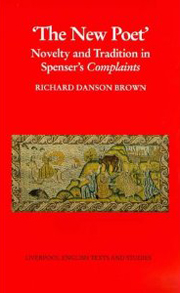Book contents
Preface
Summary
This book is a modest monument to my ten year long enthusiasm for the poetry of Edmund Spenser. Though strictly a work of literary history, it necessarily embodies my sense of Spenser's aesthetic excellence; I hope that at the very least, these ‘vaine labours of terrestriall wit’ may encourage others to explore the diversity of Spenser's artistic achievements.
This study argues that Spenser's relationship to literary tradition is more complex than is usually thought. Through a detailed reading of the Complaints, I suggest that Spenser was a self-conscious innovator, whose gradual move away from traditional poetics is exhibited by these different texts. I suggest that the Complaints are a ‘poetics in practice’, which progress from traditional ideas of poetry to a new poetry which emerges through Spenser's transformation of traditional complaint.
The Introduction reviews scholarly reconstructions of the first publication of the Complaints volume in 1591, and investigates the traditional poetics and forms of complaint poetry available to Spenser. The study is then divided into two parts. Part One considers the translations included in Complaints as traditional texts which demonstrate Spenser's ability to replicate conventional complaint and his understanding of received notions of poetic meaning. In the Chapter 1 I read Virgils Gnat as at once a faithful translation of the pseudo-Virgilian Culex, and an autobiographical appropriation of its primary allegory, retaining a basic confidence in traditional theories of allegory.
- Type
- Chapter
- Information
- The New PoetNovelty and Tradition in Spenser's Complaints, pp. viii - ixPublisher: Liverpool University PressPrint publication year: 1999

